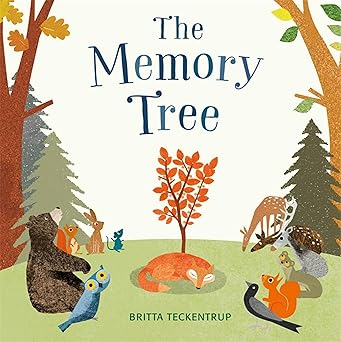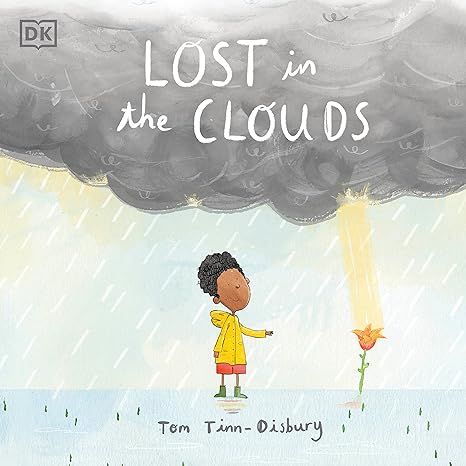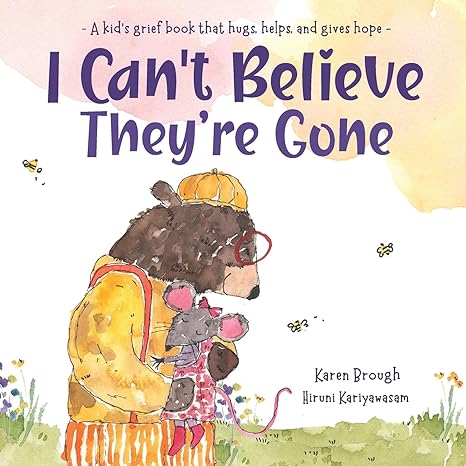
How to Help Children Cope with Death
How to help children cope with death, is a question we will all face eventually. Death is a fact relevant to all humankind. It is one that many people struggle to come to terms with.
Even adults find the mortality of those that they love difficult to acknowledge. It is no easier for a child.
In the West death can be a taboo subject, meaning that many children will not encounter the concept until it affects them personally. Childhood is a vulnerable stage of life. Our little ones depend on their adults for their survival. Therefore realising that a person can go from being there to being gone, can be terrifying.
Children have also lived shorter lives and seen less change. Many things can feel permanent to them. Unshakable. As long as they have been aware, some things have been constant. It can feel strange and unsettling when Grandma is no longer at the house she has always lived in.
Emotions are Okay
Death is a painful subject. Pain is the very last thing that we want for our little ones. When they first become aware of what is happening and display negative emotions, it is tempting to hide them from what is happening or distract them.
This is an understandable response, which in the short term could work. However, pretending death doesn’t exist, and distracting children from their emotions is not a long-term solution.
It is important to talk to our children about death. Only by being open with them, in an age-appropriate way, will they be able to understand and then accept the harsh facts. Without that understanding and acceptance, death can become a terrifying mystery that lingers in the back of their minds. If we want our children to cope with their feelings, we have to help our little ones find ways to process and express them.
As well as talking to them, listen. Hear what they say without trying to ‘fix’ what can’t be fixed.
Often when a child is experiencing a loss, so are you. Sometimes letting your child know you are sad too, can help them feel less alone. Make sure that you take time for yourself. We want to be strong for our children. Remember that in order to be strong, self-care is important during difficult times.
The Questions
Your child may well have a lot of questions about what has happened. There might be questions that you know answers for, but it is okay to be honest about what you don’t know.
When explaining death to a child, Child Bereavement UK suggests using direct language. Cliches like ‘passed away’, or ‘didn’t make it’ can increase their confusion.
No child needs gory details. Simple and practical information can be helpful though. When children are left in the dark their imaginations can fill in the gaps, and often their fantasies are scarier than the truth. Offering clarity can be an important part of how we help children to cope with death.
Explaining physical death, thanks to modern science, can be simple. You can talk about things they may already be aware of, such as the importance of the heartbeat and breath As far as the spiritual side, that is something you can adapt to fit your family’s beliefs.
The Fears
Death can cause children a lot of fear. They may ask questions about what will happen if they die, or if you die.
These fears are normal. When they come, stay calm. It is important to let your child talk about their fear to you. These won’t be pleasant conversations, but they are important. Our children need to understand it is normal to have these fears. Furthermore, they mustn’t be forced to close the fear in their hearts to deal with it alone.
So don’t be afraid to talk. Maybe talk about how you are working to ensure that your child, and those in your household, will be healthy and safe. Acknowledge that death is sad and scary, but remind them that the reason death is so terrifying is because life is so great.
Whilst a fear of death and anxiety around the topic is normal, there may be times when it gets out of control. Thanatophobia, an anxiety disorder centred around the fear of death, is just as common in children as it is in adults. If your child’s fear begins to impact their daily routines, or if you go over six months and they are still experiencing anxiety, then it is important to get them support. Death can be hard for children to cope with, but there are people out there who are trained to help.
Where to get support if your child is struggling with death anxiety?
- Make an appointment with your local GP. They can work with you and help get you the right support.
- Talk to your child’s school. Many schools have support systems in place to help children who are struggling with mental health
- Call a mental health helpline. If you google mental health support, and your location, there are often charities and help centers that can offer support.
The Funeral
Funerals can offer children a chance to say goodbye and can help with closure for children who are struggling to cope with a loved one’s death. It can also help them to feel less alone, as they join with others to grieve a death and celebrate a life. You may not know the tone of the funeral in advance, but some are crafted to highlight gratitude for all that the person was. This can help little ones refocus from the pain of the loss and onto the positive aspects of the loved one’s life.
Funerals can also, however, be emotional. If a child is feeling vulnerable the intensity of a funeral can be overwhelming, rather than helpful. Especially if this is the first death they have encountered, some children may worry that they will not be able to cope.
If your child is old enough to know their mind, let them choose if to attend the funeral, or stay away. Giving them an element of control can be empowering, especially when everything may feel so out of control.
Moving forward
The pain of a loved one’s death will not dissipate overnight. There are a few things that you can do to support your child, now and in the months afterwards, and to help them process their pain.
Offer space for your child to express their emotions through art
Before the funeral perhaps you could allow your child to write a letter or draw a picture to be buried with the loved one, or alongside their ashes.
Let them free draw, paint, or build too. Art can help to express emotions. If your child is having a day when they are finding it hard to cope with worries about death, or adapting to the change, they might not know how to vocalise all their feelings. Colouring pencils can provide a wonderful outlet.
Tell stories
Although your loved one may no longer be there, you can keep their memory alive by telling their stories to your child. Depending on their age, your child may have their own stories, too. Storytelling is incredibly therapeutic and can help children to understand their emotions and put them into perspective. Repetition is part of the process, so be patient if your child wants the same story for the 10th time.
Create a memory box or book
Find photos, letters, cards and whatever else you can collect to make a box or a scrapbook to remember the loved one. Then set aside time to work on it together, letting your child fill the book with pictures, notes or stories.
Also, if you have lost a close family member and are clearing their house, perhaps there may be something that you can set aside for your child to remember them by.
Create a ritual
Finally, it can be special to plan one or two moments a year to remember those no longer with us.
You can combine this with an annual holiday, or use birthdays. Traditions will be individual for each family, so find something that works for you.
Resources
As well as conversations, there are books that can help children with the passing of a loved one.
Here a list of a few of my favourites.
The Memory Tree
Fox has lived a long and happy life in the forest, but now he is tired. He lies down in his favourite clearing, and falls asleep for ever. Before long, Fox’s friends begin to gather in the clearing. One by one, they tell stories of the special moments that they shared with Fox. And so, as they share their memories, a tree begins to grow, becoming bigger and stronger with each memory, sheltering and protecting all the animals in the forest, just as Fox did when he was alive.

Lost in the Clouds
Billy misses his mummy very much. She lives in the clouds. Some days the sun is shining and Mummy’s clouds are nowhere to be seen. Those are Billy’s favourite days. He and Daddy would play in the garden all day long, and Billy knows that Mummy is letting the sun shine for them. But not all days are like that. Sometimes Mummy’s clouds are dark, and Billy feels sad and alone.
Disclaimer: This is a beautiful story, but it does deal with the loss of a parent. It might not be right for a child who is struggling with death anxiety.

I Can’t Believe They’re Gone
Join the mouse family on an emotional journey as Bear, their empathetic companion, helps them navigate the complexities of grief and its unique expressions.
Additionally, throughout this beautifully written picture storybook, children will discover the stages of grief, common feelings, and meaningful ways to honor the memory of their loved ones.

A final note
The passing of a loved one is difficult for all involved. Be kind to yourself, and know that you will get through this.
I wish you all the peace,
Hannah Louise
References
Child Bereavement UK. “Supporting a Bereaved Pupil in a Primary School.” Child Bereavement UK, 29 Mar. 2019, www.childbereavementuk.org/primary-schools-supporting-bereaved-children. Accessed 3 July 2024.
“Explaining Death and Dying to Children.” Child Bereavement UK, www.childbereavementuk.org/explaining-death-and-dying-to-children. Accessed 3 July 2024.
Fritscher , Lisa. “How to Help Children Overcome the Fear of Death.” Verywell Mind, 23 Jan. 2023, www.verywellmind.com/fear-of-death-in-children-2671783#:~:text=Anxiety%20and%20distress%20about%20death. Accessed 5 July 2024.
Gire, James. “How Death Imitates Life: Cultural Influences on Conceptions of Death and Dying.” Online Readings in Psychology and Culture, vol. 6, no. 2, 1 Dec. 2014, scholarworks.gvsu.edu/cgi/viewcontent.cgi?article=1120&context=orpc, https://doi.org/10.9707/2307-0919.1120.
Gordon, Sherri . “How Can I Get My Child to Stop Being Preoccupied about Death?” Verywell Family, 31 Aug. 2020, www.verywellfamily.com/help-child-to-stop-worrying-about-death-1448615. Accessed 5 July 2024.
Holland, Kimberly. “Everything You Should Know about Thanatophobia.” Healthline, Healthline Media, 27 Sept. 2017, www.healthline.com/health/thanatophobia. Accessed 5 July 2024.
How Different Cultures around the World Deal with Death. – Clear Cremations. 10 Apr. 2023, clearcremations.com/how-do-different-cultures-from-around-the-world-deal-with-death/#:~:text=Cultures%20around%20the%20world%20have. Accessed 3 July 2024.
“How to Talk to Children about Death and Dying.” Hospice UK, www.hospiceuk.org/information-and-support/your-guide-to-hospice-end-of-life-care/how-talk-children-about-death-and-dying. Accessed 3 July 2024.
LifeCare, Lower Cape Fear. “How to Help a Grieving Child Cope: 20 Comforting Tips.” Lower Cape Fear LifeCare, 11 Aug. 2021, lifecare.org/news-events/20-ways-to-help-a-grieving-child/. Accessed 3 July 2024.
NHS. “Children and Bereavement.” Nhs.uk, 4 Feb. 2021, www.nhs.uk/mental-health/children-and-young-adults/advice-for-parents/children-and-bereavement/. Accessed 3 July 2024.
Porteous-Sebouhian, Bryony. “How Accepting Our Mortality Can Be Freeing.” MHT, 10 Sept. 2021, www.mentalhealthtoday.co.uk/blog/the-journey-to-accept-our-own-mortality-can-be-more-freeing-than-we-d-ever-expect.
Salek, Elyse, and Kenneth Ginsburg. “How Children Understand Death & What You Should Say.” HealthyChildren.org, 2019, www.healthychildren.org/English/healthy-living/emotional-wellness/Building-Resilience/Pages/How-Children-Understand-Death-What-You-Should-Say.aspx. Accessed 3 July 2024.








